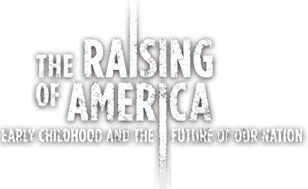Our Experiences Go Deeper Than We Thought
to watch purchased videos
Add to Your Favorites
Remove from Your Favorites
Clip Transcript
NARRATOR: We’ve long known that what happens to us in childhood can leave a lasting imprint on the adults we become. The places we live. The people we know. The best of times, and the worst. They all somehow become part of us. Now, a new science is telling us that our experiences go even deeper than we thought.
NAR: It happens on the genetic level. Experiences, scientists have learned, can leave chemical marks on our DNA. Those marks can switch genes on or off, changing the way our bodies and our brains function. The changes can prime us to thrive, or they can impede development affecting health and well-being for life.
Marilyn Essex, Director, Life Stress and Human Development Lab, University of Wisconsin-Madison:
We’re talking about processes here that are at a biological level. It just gets under the skin in a variety of ways.
NAR: These chemical tags are set in place critical periods of biological change.
Marie Lynn Miranda, Provost, Environmental Health Researcher, Rice University:
There’s these special vulnerabilities in utero, during pregnancy, in infancy, in early childhood.
NAR: Everything in an infant’s experience can help or hinder: diet, environmental toxins, housing, safety, even the parents’ stress levels.
NAR: These new discoveries have profound social and political implications. Because if social influences can alter the way our genes work then early environments can result in biological obstacles to success that are beyond personal choices.
Darlene Francis, Behavioral Neuroscientist, University of California, Berkeley:
The poorest kids in our society, not surprisingly, are the most vulnerable to just about every health outcome we can measure.
Darlene Francis:
These are fairly healthy young children who, with time, are going to suffer the consequences of their social class.
NAR: New evidence shows that social and economic stressors can affect children in infancy, causing changes in gene expression, changes that may last a lifetime.
Marilyn Essex:
It affects their way of thinking, it affects their views of themselves, it affects their social relationships.
NAR: But along with a new understanding of how early experience influences development, this science brings hope.
NAR: Improved social conditions, the evidence shows, can actually provide the biological foundation for lives that are healthier, and more likely to thrive.
Marie Lynn Miranda:
The science is clear about this. What we need is for the policy to follow the science and get us to more protective environments for children.


